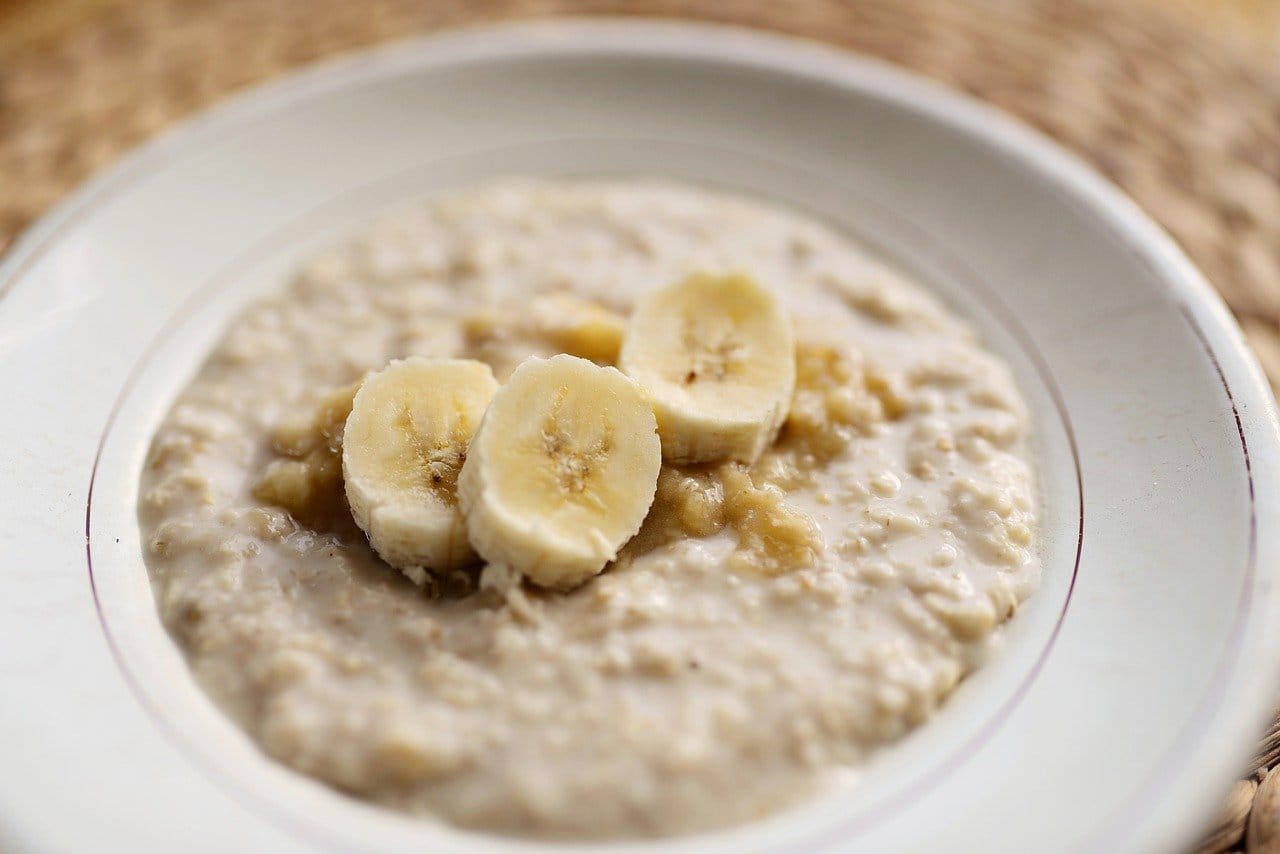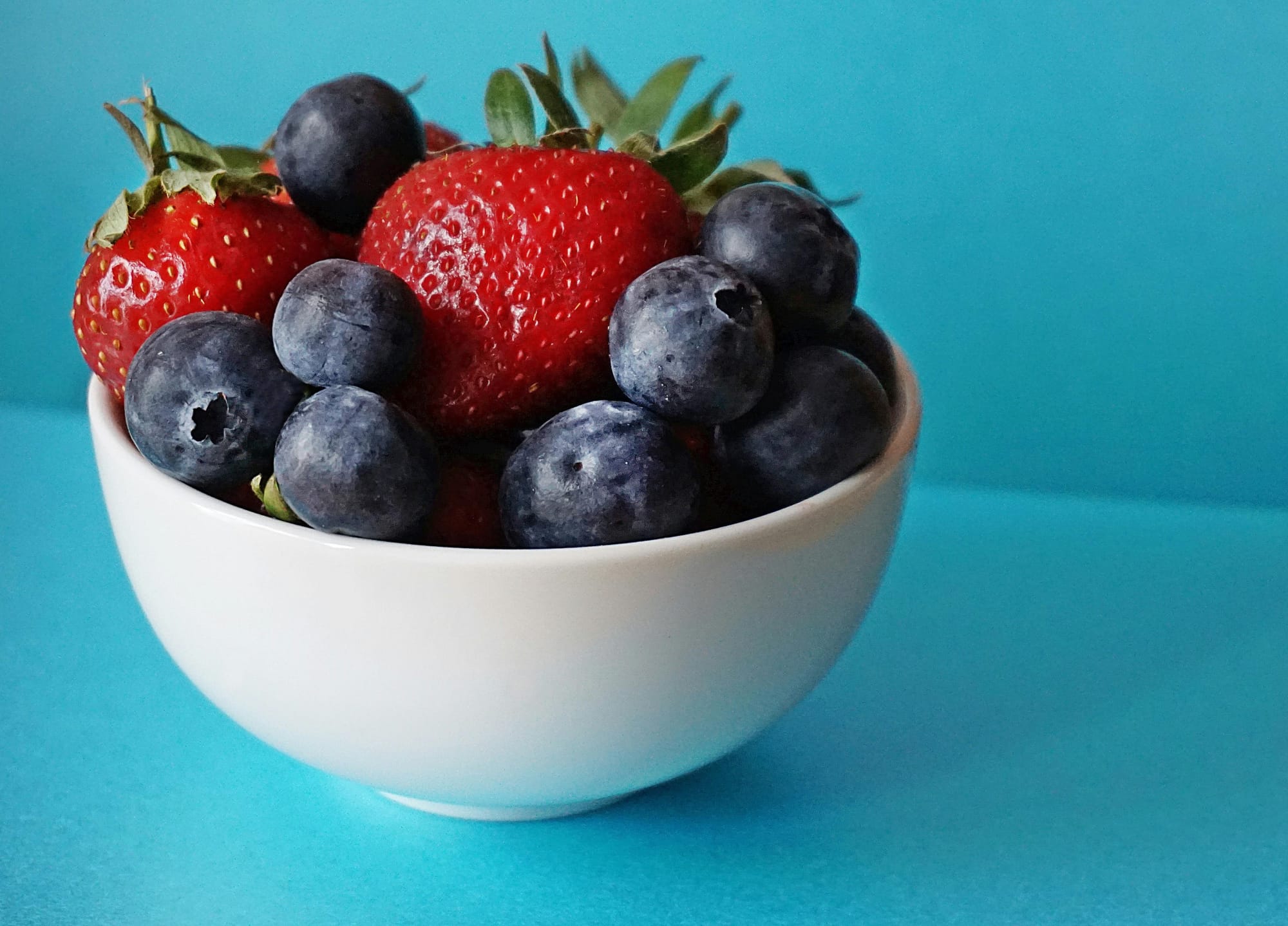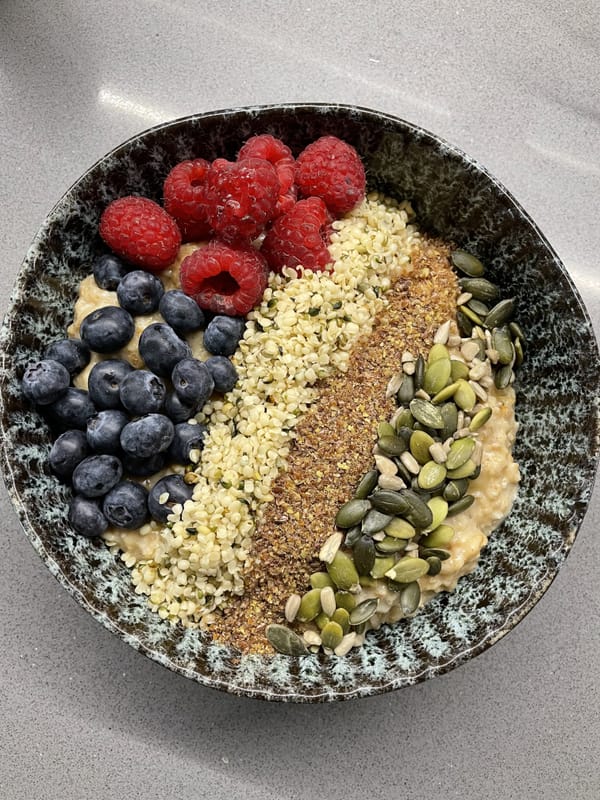Hey friend,
You'll probably have seen me championing the benefits of oatmeal as a low-cost, versatile, healthy and adaptable breakfast option in newsletters or on social media, and it tends to be met with some fear – mainly around glucose 'spikes' - and how detrimental they are for our health.
This has been an idea popularised by Jessie Inchauspé – more widely known as the "Glucose Goddess" – who is a French biochemist who has built a huge platform all around magnifying the negative effects of spikes in blood glucose, and how to combat them with certain 'hacks' and 'tricks' – such as changing the order of your food, consuming vinegar with meals, and so on.
My problem with this is that adopting such a reductionist view of food takes people away from the bigger picture and creates more harm than it does good.
It's important to note this:
There are absolutely foods that we should be limiting in our diets that cause large spikes in our blood sugar; refined carbohydrates, junk foods, foods with plenty of added sugar, and so on.
These foods are often low in fibre, protein and fat – nutrients which provide a much more stable blood glucose response.
But we all know this anyway, right? Plus these foods do a whole lot more than just spike blood glucose – when eaten in excess they contribute to many of the chronic diseases that ravage society.
There's also the fact that we know there is a degree of individuality to how we eat.
Some of us may feel and respond better to a savoury breakfast option with more protein and less carbohydrates - and that's absolutely fine as well.
The thing with oats is that it's a food that you can very easily create confusion by using sweeping blanket statements.
Are instant oats laden, stripped of their fibre, and with added sugar a breakfast option that would spike your sugar levels and not keep you very satiated? Sure.
Probably best to steer clear more often than not.
But what about a bowl of organic wholegrain rolled/steel cut oats, with nuts and seeds added to it, as well as low-GI and fibre-rich fruit such as raspberries, blueberries and blackberries? Perhaps even a scoop of protein powder?
This is a very different story – clearly a more rounded nutritional profile is provided here.

One of the biggest problems I have noticed in the social media nutrition landscape is the reduction of foods to a single effect that it has on the body.
Why are people ONLY looking at what oatmeal does to blood glucose, when we have studies that actually look at overall health outcomes related to oat consumption?
Which in my view, matters a lot more.
This meta-analysis – meaning a study of all available studies on the topic – included nearly 500,000 participants and showed that oat consumption could reduce risk of Type 2 Diabetes, as well as all-cause mortality; that being the risk of dying from any cause.
So surely looking at long-term evidence of oat consumption is a better bet than hyperbolically going crazy over what oatmeal may or may not do at a single point in time?

What's more is that a rise in blood glucose is a completely normal physiological response – which the body then responds to by releasing insulin from the pancreas, aiding the transportation from glucose into our cells.
Blood glucose rising after eating is not indicative of there being anything inherently wrong with you, as some will have you believe.
Of course, chronically elevated glucose levels is something we don't want – which is where limiting consumption of refined foods and being more physically active are super important.
So what to make of oatmeal then?
Is it a blood-sugar raising "poison" that should be avoided at all costs, or a breakfast choice that can be cost-effective and health-promoting in equal measure?
Generally speaking it's the latter – but there are some considerations.
My preference for you to make oatmeal more complete is to pair it with other macronutrients to make it a more balanced meal.
Add hemp/pumpkin/chia/flax seeds and a nut butter of choice for healthy fats, some berries (blueberries, raspberries, blackberries), perhaps a scoop of protein powder, and even some spices and functional foods like cinnamon and maca.
This to me is a really rounded way to do it.
The instant oatmeal packets? You'll want to limit those; they're often laden with added sugars that you could do without.
By the same token, if you prefer a more savoury breakfast - that being a scrambled tofu type breakfast, or eggs if you eat those – then absolutely stick to that.
It is about listening to your body and doing what works for you.
But the blanket statement claiming that oats are bad for everyone? You can put that in the bin.
If you want some free oatmeal inspiration, access the link here to download a free e-book.
Stay healthy,
Jeff
- If you want to offer Patreon-style support my work here and on social media, consider subscribing below – you'll have the opportunity to comment on posts, as well as receive updates and announcements via my members-only newsletter.


